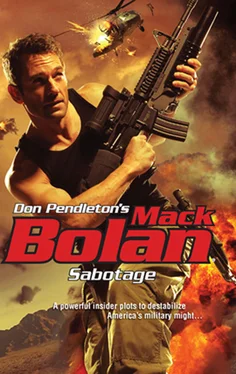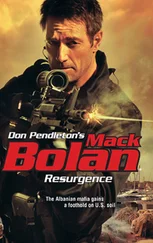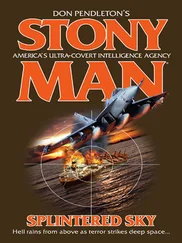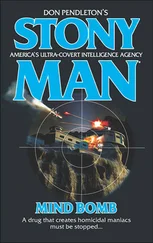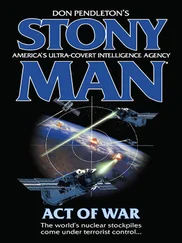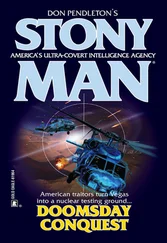Yuri Trofimov wasn’t most men.
He wouldn’t be truly satisfied until the United States, the embodiment of the hated West, suffered as his homeland had suffered. Only when the arrogant United States knew the pain of losing its military might abroad, only when the miserable United States was humiliated on the international stage as the Soviet Union and later Russia had been, only when the United States military—the truncheon with which the Americans beat all around them—was utterly disgraced would Yuri Trofimov be truly satisfied.
And thus he had, using the great wealth and power available to him, embarked on the elaborate plan that was to be his life’s crowning achievement. He was going to destroy the United States military, using the Americans themselves to help him do the work.
He had, of course, no compunctions about breaking the law. He had begun his life as a criminal; laws were for other men, not the rich and powerful like Trofimov. As long as he was smart enough not to get caught, and he had always been smart enough not to get caught, he could do as he willed, pay whom he wished to kill whom he wished. It was the way of things. Simple violence solved many problems. Complicated, crafty, deceitful violence…well, that solved so much more. And of what use was power if it wasn’t applied, used to shape the world in the way the man wielding that power saw fit? That was, after all, what had first attracted Trofimov to wielding power over others: the ability to manipulate and shape the world by affecting the will of other men and women. He let his hatred guide him. He would shape the world.
He started by infiltrating and then co-opting most of the Peace At Any Cost group. It was the largest and had the most influence on the antimilitary scene within the United States, a fact born out by the copious research his people at TBT News conducted at his direction. It was simple enough to liberate from the group those members willing to take the next step, to use actual violence in fighting the hated American military and what it represented. Trofimov himself had selected the first targets. He had made certain that these baby killers, these returning war criminals, knew that they weren’t safe in their own country, weren’t safe from the horrors they had inflicted overseas.
He hadn’t counted on the American government covering up the crimes, however. This robbed his murders of the impact they were to have. He fought his propaganda campaign on many fronts, including spreading and sensationalizing the reports of the latest high-profile military atrocities, and he manufactured these accordingly when it was required. This helped, but it didn’t fully compensate for the covered-up killings of returning military personnel. Then TBT News had run a report on the growing popularity of protests of military funerals, and Trofimov had another stroke of brilliance. He had his PAAC people use their groups to promote more such protests, and when the time was right, he had the elements within PAAC that he controlled break away and begin the killings anew.
Of course, the peace activists were difficult to control, and had no training in violence or the use of weapons. That didn’t matter. Trofimov had access to more than enough men and matériel to train and direct these useful idiots. He had called in his mercenaries and made sure they knew what he wanted, then allowed them to run the operations as they saw fit. He still suggested targets, but on the whole, the operation ran without his direct involvement. This was good; it increased the level of plausible deniability he held, further insulating him from exposure, keeping him and his reputation safe while his people brought his will to fruition.
But all of this was just the start. It was a taste of what was to come, the barest tip of the operations his personnel were running. When Trofimov actually stopped to consider the vast scope of the operation, the world-changing audacity of it, it awed even him. It was a fitting life’s work, as he saw it. It was an appropriately bold testament to the power wielded by one Yuri Trofimov, and the legacy left behind by the application of that power would be a different world. That world would be one in which the United States military, humiliated and diminished, would have far less power over the lives of every other person on the planet…and thus, the United States, the West itself, would be diminished. That was Trofimov’s goal and his life’s work. That was, he had decided some years earlier, the true end goal of his life, the end toward which the means of his wealth was working. He would not fail.
He would change the world.
The clearing of a throat broke him from his introspection. He swiveled in his chair again, facing the interior of his office, and steepled his fingers.
Trofimov frowned as he looked over his guests. These men were, truthfully, really more employees than guests, but he prided himself on his cultivated manners, and so he treated them as if they weren’t simply hired help. Yuri Trofimov might be nouveau riche in the eyes of what passed for aristocratic society in this part of Florida, but manners were as important to him as all the rest, the trappings and the plans and the plots and the schemes. He was a rich man, first and foremost; he could afford himself a few affectations, could allow himself a few indulgences and even pretenses.
“You just gonna sit there mooning all day?”
Trofimov’s frown deepened as he focused on the speaker. Gareth Twain lounged insolently in the nearest padded office chair. Trofimov spared him a withering glance and then scanned the other visitors to his high-rise office. He had taken little notice of them when they filed into the room; now he supposed he would have to deal with them.
One of Twain’s people, an agitated Korean, paced back and forth by the door. In the lounge chair on the facing wall, cigarette smoke curling up to the ceiling, Mak Wei watched with feigned indifference. Mak was yet another Chinese operative late of the People’s Liberation Army. Trofimov had enough information on Mak and his handlers to know that the Chinese had tried more than once to mount plausibly deniable operations on American soil. Trofimov also gathered that several of Mak’s predecessors hadn’t fared well, either failing in their missions directly and fatally, or failing only to return to China to face the wrath of their superiors. Trofimov hadn’t bothered to look too deeply into this; it would have nettled Mak to discover the probing, anyway, and the man was touchy enough at the best of times. Trofimov supposed he didn’t blame him, given just how notorious the Chinese government was when it came to operations of this type.
The shaven-headed Twain, who looked and dressed like a surly stevedore, was head of the many mercenary forces in Trofimov’s employ. He performed his work well, and always did as asked with no complaints and no argument. Trofimov imagined he could tell Gareth Twain to drive to the nearest elementary school and shoot dead every child on the playground, and Twain would merely quote a price before calmly leaving to perform the deed. It wasn’t clear to the businessman exactly why Twain did what he did, or what the man cared about. Perhaps he cared about nothing; perhaps he had no goals save the earning of money through the relative ease of his casual brutality. It didn’t matter to Trofimov—though Twain’s arrogant, cavalier manner irritated him. The big, ruddy, bullet-headed Irishman seemed always to be laughing at him, and at everyone else he met. Trofimov imagined that this was because, in his mind, Twain was picturing the murder of every human being he encountered. The Russian could live with that. The money he paid Twain kept the man in check, or at least directed his madness toward the targets of Trofimov’s choosing.
Читать дальше
